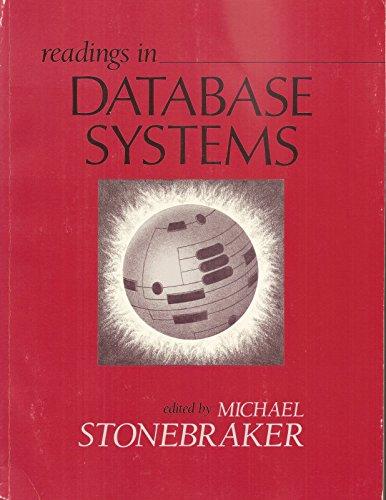Question
Solve in comments ( MATLAB ) % Q1: What is done to calculate x on line 6 and y on line 12 below? I =
Solve in comments ( MATLAB )
% Q1: What is done to calculate x on line 6 and y on line 12 below?
I = 41;
Dx = 1;
xmin = 0;
xmax = 40;
x = xmin + (xmax-xmin)*[0:I-1]'/(I-1);
J = 41;
Dy = 1;
ymin = 0;
ymax = 40;
y = ymin + (ymax-ymin)*[0:J-1]'/(J-1);
% Q2: What is happening in the below sequence of operations
N0 = floor(I*J/10);
rowindex0=unidrnd(I,N0,1);
colindex0=unidrnd(J,N0,1);
% Q3: What's happening from lines 20-36?
A = zeros(I,J);
rowindex=zeros(N0,1);
colindex=zeros(N0,1);
N=0;
for i = [1:N0]
if ( A(rowindex0(i),colindex0(i)) == 0 )
N=N+1;
rowindex(N)=rowindex0(i);
colindex(N)=colindex0(i);
end
A(rowindex0(i),colindex0(i)) = 1;
end
rowindex=rowindex(1:N);
colindex=colindex(1:N);
xobs = x(rowindex);
yobs = y(colindex);
N=length(xobs);
% Q4: What's happening from lines 39-42?
kappa = 0.1;
dtrue = 10*sin(kappa*xobs).*exp(-kappa*yobs);
sigmad = 0.1;
dobs = dtrue + random('Normal',0.0,sigmad,N,1);
% Q5: Why do we need the below four lines?
A = zeros(I,J);
for i = [1:N]
A(rowindex(i),colindex(i)) = dobs(i);
end
figure(1);
clf;
set(gca,'LineWidth',2);
hold on;
axis ij;
axis equal;
axis([0, I, 0, J]);
bw=0.9*(256-linspace(0,255,256)')/256;
colormap([bw,bw,bw]);
range=max(max(A))-min(min(A));
if( range==0 )
range=1;
end
imagesc( [0, I], [0, J], (A-min(min(A)))/range);
hold on;
xlabel('y');
ylabel('x');
title('data');
figure(2);
clf;
set(gca,'LineWidth',2);
hold on;
axis ij;
axis equal;
axis([0, I, 0, J]);
bw=0.9*(256-linspace(0,255,256)')/256;
colormap([bw,bw,bw]);
range=max(max(A))-min(min(A));
if( range==0 )
range=1;
end
imagesc( [0, I], [0, J], (A-min(min(A)))/range);
hold on;
xlabel('y');
ylabel('x');
title('data + triangulation');
% Q6: What's happening on line 90?
mytri = DelaunayTri(xobs,yobs);
XY=mytri.X;
[NXY, i] = size(XY);
TRI=mytri.Triangulation;
[NTRI, i] = size(TRI);
for i = [1:NTRI]
v1=TRI(i,1); v2=TRI(i,2); v3=TRI(i,3);
plot( [XY(v1,2), XY(v2,2)], [XY(v1,1), XY(v2,1)], 'k-', 'LineWidth', 2);
plot( [XY(v2,2), XY(v3,2)], [XY(v2,1), XY(v3,1)], 'k-', 'LineWidth', 2);
plot( [XY(v3,2), XY(v1,2)], [XY(v3,1), XY(v1,1)], 'k-', 'LineWidth', 2);
end
% Q7: What's happening from lines 105-113?
x0=[20,30];
tri0 = pointLocation(mytri, x0);
plot( x0(2), x0(1), 'ko', 'LineWidth', 2);
if( ~isnan(tri0) )
v1=TRI(tri0,1); v2=TRI(tri0,2); v3=TRI(tri0,3);
plot( [XY(v1,2), XY(v2,2)], [XY(v1,1), XY(v2,1)], 'k-', 'LineWidth', 3);
plot( [XY(v2,2), XY(v3,2)], [XY(v2,1), XY(v3,1)], 'k-', 'LineWidth', 3);
plot( [XY(v3,2), XY(v1,2)], [XY(v3,1), XY(v1,1)], 'k-', 'LineWidth', 3);
end
%Q 8: What's happening from lines 116-125?
xp = zeros(I*J,1);
yp = zeros(I*J,1);
dp = zeros(I*J,1);
for i = [1:I]
for j = [1:J]
k = j + J*(i-1);
xp(k) = x(i);
yp(k) = y(j);
end
end
% Q9: What's happening on line 128?
dp=griddata(xobs,yobs,dobs,xp,yp,'linear');
% Q10: What's happening from lines 131-137?
B = zeros(I,J);
for i = [1:I]
for j = [1:J]
k = j + J*(i-1);
B(i,j) = dp(k);
end
end
figure(3);
clf;
set(gca,'LineWidth',2);
hold on;
axis ij;
axis equal;
axis([0, I, 0, J]);
bw=0.9*(256-linspace(0,255,256)')/256;
colormap([bw,bw,bw]);
range=max(max(B))-min(min(B));
if( range==0 )
range=1;
end
imagesc( [0, I], [0, J], (B-min(min(B)))/range);
hold on;
xlabel('y');
ylabel('x');
title('linear interpolation');
dpp=griddata(xobs,yobs,dobs,xp,yp,'cubic');
C = zeros(I,J);
for i = [1:I]
for j = [1:J]
k = j + J*(i-1);
C(i,j) = dpp(k);
end
end
figure(4);
clf;
set(gca,'LineWidth',2);
hold on;
axis ij;
axis equal;
axis([0, I, 0, J]);
bw=0.9*(256-linspace(0,255,256)')/256;
colormap([bw,bw,bw]);
range=max(max(C))-min(min(C));
if( range==0 )
range=1;
end
imagesc( [0, I], [0, J], (C-min(min(C)))/range);
hold on;
xlabel('y');
ylabel('x');
title('cubic interpolation');
Step by Step Solution
There are 3 Steps involved in it
Step: 1

Get Instant Access to Expert-Tailored Solutions
See step-by-step solutions with expert insights and AI powered tools for academic success
Step: 2

Step: 3

Ace Your Homework with AI
Get the answers you need in no time with our AI-driven, step-by-step assistance
Get Started


